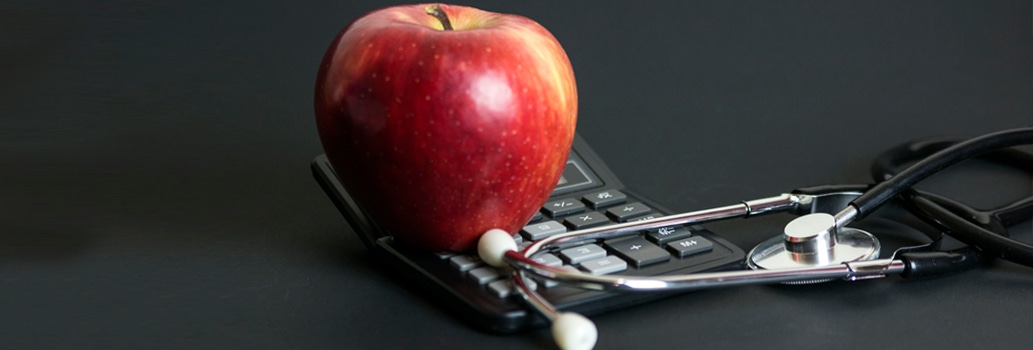
Should you kiss calorie counting goodbye?
The average woman spends 31 years of her life on a diet. While that may seem astounding, at some point most of us can relate to having counted calories.
The basic guideline to being healthier is to eat less and exercise more. Easy, right? This equation of ‘calories in’ versus ‘calories out’ has been the premise of weight-loss diets for centuries.
Calories are simply a unit of measure, originally used to measure the efficiency of steam engines. One ‘calorie’ is the energy needed to heat up 1kg of water by one degree Celsius. In the 1890s, Professor Wilbur Atwater applied this theory to food, to determine how much energy is provided by what we eat and drink. He discovered that a gram of carbohydrate or protein created an average of 4 calories, while fat offered an average of 8.9 (later rounded to 9).
This formed the basis for countless diet programs and led to dieters actively avoiding fats, because they produced more calories.
We now know foods higher in good fats can actually help manage weight, keep us feeling fuller for longer and offer a wide range of health benefits - even though they may be high in calories.
In fact, in the past 200 years, we’ve come a long way in understanding nutrition and how the human body works.
The fact is not all calories are created equally.
Consider the comparison between a 200-calorie piece of cake and 200 calories of nuts. While they may have the same calories, our bodies process these foods differently.
From a piece of chocolate cake, we may get a quick sugar rush, however, the calories come with little nourishment. The nuts however, are packed with essential nutrients and the calories they do contain come mainly from good monounsaturated and polyunsaturated fats that are important for our health. Eating nuts may actually help with weight management. (FYI - when we eat nuts, our bodies also don’t actually absorb all the fat and calories they contain, because the fat is trapped in the fibrous structure of the nuts).
So what should we be doing? Is it time to kiss calorie counting goodbye? And if so, what’s the best approach to managing a healthy weight?
While there is a role for calories and portion control, the tide may be turning away from restrictive dieting to simply enjoying healthy whole foods.
Sanitarium dietitian Trish Guy recommends broadening your focus beyond calories. Her top 4 tips to eating for long-term weight management and better health are:
Colour crush
Focus on increasing the amount and variety of plant foods you are eating daily. Rather than count calories, count colours and aim to bulk up your bowls with a rainbow of fruits, veggies, wholegrains, nuts and legumes. Filling your plate with nutrient-dense foods will help keep you satiated and give you long-lasting energy. It also ensures there’s less room on your plate, and in your stomach, for foods containing ‘empty’ calories with little nutritional benefit – think discretionary foods like lollies, chips and biscuits.
Slow down
A mindful eating approach may help with weight problems. It encourages listening to your body so you can tell when you are full. Digestion is complex and it takes about 20 minutes for the gut - brain connection to register satiety, so aim to take this amount of time for each meal (or wait for 20 minutes to pass before going back for seconds). Eating too fast, or while distracted, can easily lead to overeating.
Snack smart
Use your snacks to fill up on whole foods you’re not getting enough of. Each day, we should be aiming for 5 serves of veggies, 2 serves of fruit, 4-6 serves of grains (mainly whole grains), 2-3 serves of dairy foods, 1-3 serves protein foods such as legumes/tofu, eggs, nuts and seeds and if desired, fish, poultry or lean meat. Most New Zealand women are low on veggies, nuts, legumes and dairy. Snacks are a great way to top up the numbers - try a tub of Greek yoghurt with some berries, a handful of mixed nuts, or hummus and veggie sticks.
Drinks matter
Alcohol and sugary drinks are high in calories, low on benefits and can quickly throw your diet out of balance. It’s best to stick with water whenever possible.

The latest nutrition advice, plus health and wellness tips delivered to your inbox monthly